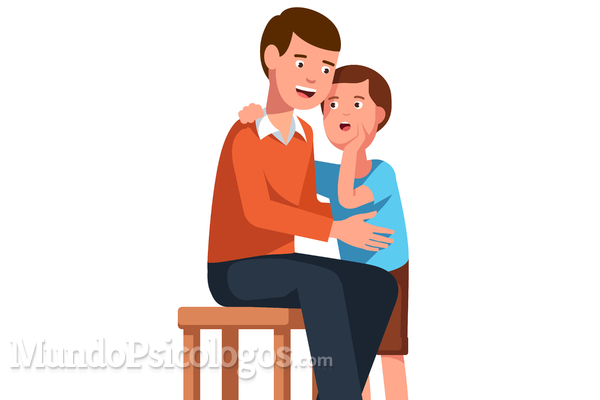Do you think you are constantly looking for conflict? Do you think you suffer from a conflict addiction? Discover how to leave these types of attitudes behind and confront these feelings.

There are people who seem to feel comfortable arguing or confronting others. It is as if his natural state were anger, anger and bad mood. They are always on or about to explode, they generate tension and discomfort. It’s what you have conflict addiction an urgent need to explode.
Conflict addiction: what does it consist of?
We all know someone with a conflictive personality, always ready to start disputes, no matter what. From a small gesture, to a comment or a simple word can be enough to start a conflict. And they are not rebellious teenagers or moody people, but rather a very specific profile aimed at destabilizing, breaking the calm, generating tension and creating battles between families, friends, co-workers and couples. We talk about a addictive behavior which is characterized by incessantly seeking conflict.
Of course, although there is no disorder or syndrome as such in any diagnostic manual today, the terms “conflict addiction” to refer to a set of traits and behavioral patterns focused on generating controversy and discussion.
Although if we go a little further, we could affirm that the addiction Specifically, it would be noradrenaline that is released by the amygdala in the face of a situation that is interpreted as a threat. It is a catecholamine that can act as both a neurotransmitter and a hormone, which prepares the body for attack or flight and is also responsible for “high” what it feels like when one explodes in a fit of anger.

Characteristics of people addicted to conflict
People who fit these types of profiles are also known as high conflict personalities or HPC. They tend to be challenging, comforting, and with a tendency to project their anger onto others.
On an emotional level, they have little or no management of their emotions. They tend to be impulsive, shout at the first opportunity and usually get carried away by anger, resentment or the need to be right.
Regarding their beliefs, they are characterized by thinking in an absolutist or dichotomous way, “all or nothing”. That is, they tend to go to extremes and distort what happened, which forms a rigid mentality that in most situations, and especially in full conflict makes reflection difficult.
Another characteristic of people with conflict addiction is that they have quite a difficult time empathizing, since they tend to see the world from their perspective. Which leads them to look for blame for what does not happen as they expect and to show a low tolerance for frustration, since they are incapable of reflecting on what happened and their way of acting.
Some of the people who show this difficulty usually have personality disorders or some of their traits and characteristics. Now, behind that conflict addiction There are a large number of fears and resistances. These types of personalities are usually at war with themselves, that is, they have many conflicts with themselves, but they are not aware of it; hence they project it outwards, towards others… However, this does not mean that limits are not set for them.

Keys to acting with people addicted to conflicts
Sometimes we are forced to deal with high conflict people, therefore it is convenient to know how to act with them. In this way, we will avoid many of the consequences and also protect ourselves.
The first thing we have to keep in mind is that our behaviors are not aimed at changing these people. Here there are two objectives that we must not forget: on the one hand, what we are going to change is the way in which we respond to them and on the other, we are going to avoid personalizing their reactions, as we have said, they are people with a great internal war.
Therefore, getting lost in eternal conversations in which we have to justify ourselves and give explanations is not convenient. It is about protecting ourselves so as not to let ourselves be infected by their state of anger, resentment or rage, that is, we must deactivate the impact of their reactions on us. Don’t take into account what they say. Hence, trying to empathize with them is usually a good strategy.
So, if we let him know that we know how he feels, what doesn’t seem right and that we are interested in his point of view, we can help reduce its explosion Of course, you have to be especially careful and avoid making them understand that they have done wrong or that they also have responsibility for what happened because it will be impossible for them and they will most likely take it as an attack.
Another recommended point is to help them make decisions and see other alternatives, since this will prevent them from focusing on the complaints and what happened and their attention will focus on what can still be done.
As we see, it is not easy to deal with people with conflict addiction and much less pleasant. After all, these are personalities at war with themselves. Therefore, the fundamental thing is not to take into account what they say and try to manage our response by setting limits and, to the extent possible, assessing whether this relationship is worth it to us.








